
Hi there! I’m Sakura Walker, an American writer living in Japan. Ever since moving here, I’ve been exploring different cities, and Fukuoka quickly became one of my favorites. If you’re wondering what things to do in Fukuoka, let me share why this city deserves a spot on your travel list.
Fukuoka has it all—amazing food, beautiful coastal views, and a perfect mix of modern and traditional culture. If you’re a foodie, you must try Hakata ramen, famous for its rich tonkotsu broth, and enjoy the lively yatai street food stalls for an authentic dining experience.
Beyond food, Fukuoka offers stunning nature like Itoshima’s Futamigaura Beach and the peaceful Ohori Park. History lovers will enjoy visiting Dazaifu Tenmangu Shrine, while adventure seekers can take a Yanagawa boat ride or experience TeamLab Forest’s interactive digital art.
Planning your visit? A two-day itinerary covers the highlights, but if you stay longer, there’s even more to explore. And if you’re coming from Tokyo, the Nozomi Shinkansen gets you here in just five hours.
In this guide, I’ll introduce you to Fukuoka’s must-see spots, best activities, and insider tips—so you can experience this dynamic city like a local.
Points of this time!
・The best attractions and famous activity spots in Fukuoka for sightseeing and exploration
・What Fukuoka is popular for, including its food, culture, and unique local experiences
・How many days are needed in Fukuoka to fully enjoy its top destinations and day trips
・How much the bullet train from Tokyo to Fukuoka costs and the best travel options
What things to do in Fukuoka?Beginner’s Guide: Must-See Attractions
・Is Fukuoka worth visiting?
・What is Fukuoka popular for?
・Most beautiful places in Fukuoka
・Famous activity spots in Fukuoka
・Unique things to do in Fukuoka
Is Fukuoka worth visiting?
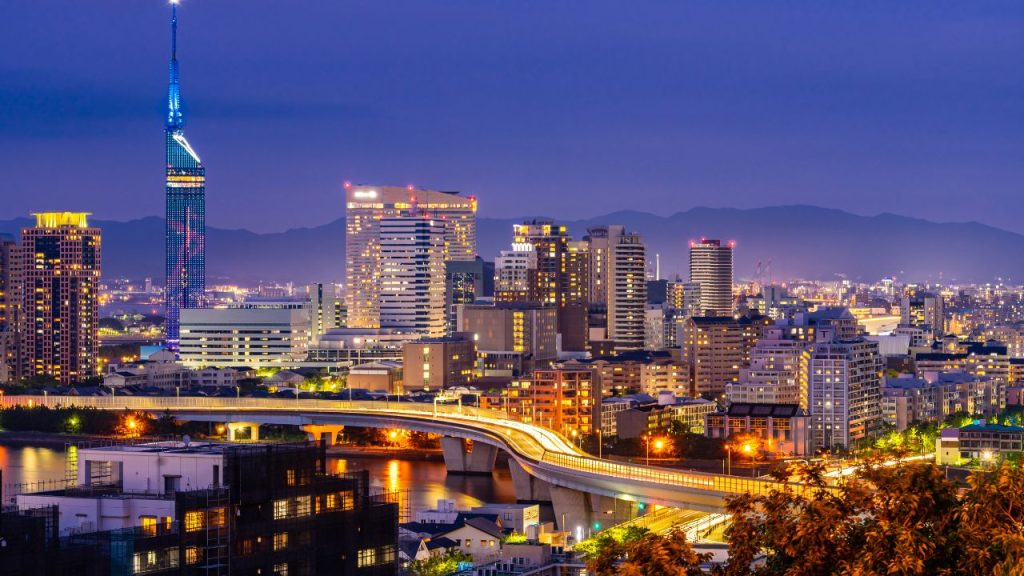
Absolutely! Fukuoka is one of Japan’s most underrated cities, offering a unique blend of rich history, modern attractions, and vibrant local culture. Located on the northern coast of Kyushu, Fukuoka has long been a gateway between Japan and the rest of Asia, resulting in a fascinating mix of influences in its food, architecture, and lifestyle.
One of the biggest reasons Fukuoka is worth visiting is its laid-back yet lively atmosphere. Unlike the fast-paced hustle of Tokyo or the traditional elegance of Kyoto, Fukuoka strikes a perfect balance between urban convenience and relaxed coastal vibes. The city is known for its friendly locals, excellent public transportation, and walkable neighborhoods, making it easy for visitors to explore.
Fukuoka is also a food lover’s paradise. It’s home to Hakata ramen, a rich and creamy tonkotsu (pork bone) broth ramen that has become famous worldwide. The city’s yatai (street food stalls) offer an authentic local dining experience where you can enjoy freshly grilled yakitori, oden, and other Japanese comfort foods while chatting with locals.
Nature lovers will appreciate the stunning coastline, mountains, and nearby islands that make for fantastic day trips. Whether you’re watching the sunset at Itoshima’s Futamigaura Beach, hiking Mount Hōman, or strolling through the beautiful Ohori Park, there’s no shortage of scenic spots to explore.
Culturally, Fukuoka boasts a blend of ancient and contemporary attractions. You can visit historic shrines like Kushida Shrine, experience the energy of the Hakata Gion Yamakasa Festival, or enjoy the cutting-edge digital art at TeamLab Forest.
For travelers seeking an authentic yet modern Japanese experience, Fukuoka offers everything from world-class shopping and entertainment to hidden cultural gems. Whether you’re spending just a couple of days or planning a longer stay, Fukuoka will likely exceed your expectations and leave you wanting to return.
What is Fukuoka popular for?
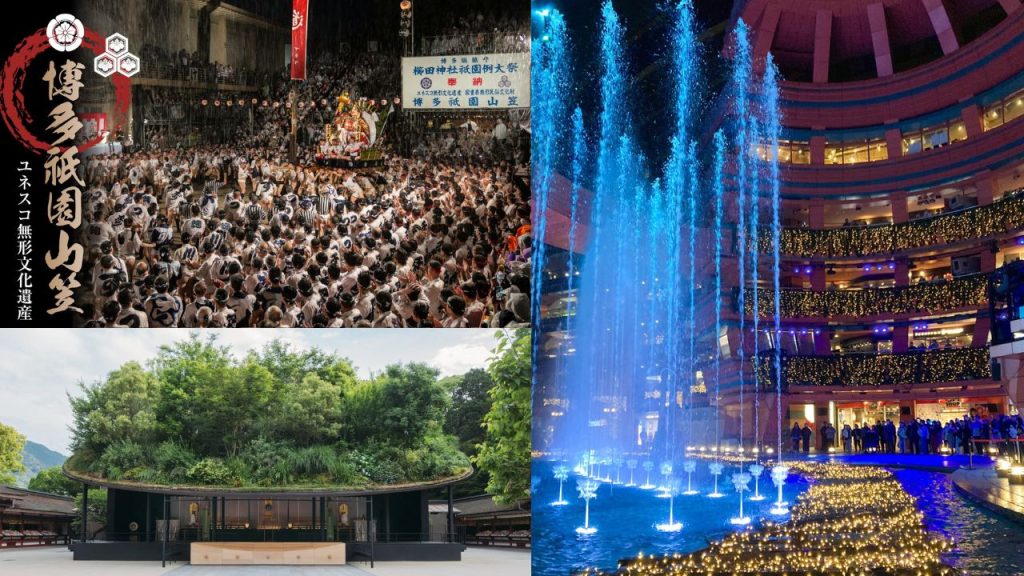
Fukuoka is famous for its incredible food, rich cultural heritage, and vibrant city life. It’s a city that seamlessly blends modernity with tradition, making it a favorite destination for both domestic and international travelers.
One of the main things Fukuoka is known for is Hakata ramen, a beloved dish featuring thin noodles in a creamy tonkotsu (pork bone) broth. Many visitors come specifically to try this famous ramen at local shops like Ichiran and Ippudo, both of which originated in Fukuoka. Additionally, the city’s yatai street food culture is legendary, offering an atmospheric way to enjoy Japanese cuisine in open-air food stalls scattered throughout the city, particularly along the Naka River in Nakasu.
Fukuoka is also recognized for its festivals and traditions. The Hakata Gion Yamakasa Festival, held every July, is one of the city’s most iconic events, featuring massive floats carried through the streets in an intense and exciting race. Other cultural highlights include the Dazaifu Tenmangu Shrine, a sacred site dedicated to the god of learning, making it a popular destination for students and history enthusiasts alike.
In terms of natural beauty, Fukuoka is well-known for its scenic coastal areas and parks. The beaches of Itoshima attract surfers and nature lovers, while Ohori Park provides a peaceful retreat within the city. For those interested in day trips, nearby destinations like Yanagawa, with its picturesque canal boat rides, and Karatsu, with its historic castle and seaside charm, are highly recommended.
Shopping and entertainment also make Fukuoka a must-visit city. The Canal City Hakata shopping complex offers a mix of fashion, dining, and entertainment, while Tenjin, the city’s central shopping and nightlife district, is always buzzing with activity. Sports fans can enjoy games at PayPay Dome, home to the Fukuoka SoftBank Hawks, one of Japan’s top baseball teams.
Fukuoka’s reputation as a dynamic and welcoming city continues to grow, making it a fantastic place to visit for foodies, culture lovers, and adventure seekers alike.
Most beautiful places in Fukuoka
Fukuoka is a city full of stunning locations, from natural landscapes to historic landmarks. Whether you’re looking for breathtaking coastal views, serene gardens, or cultural hotspots, Fukuoka has plenty to offer.
1. Itoshima’s Futamigaura Beach
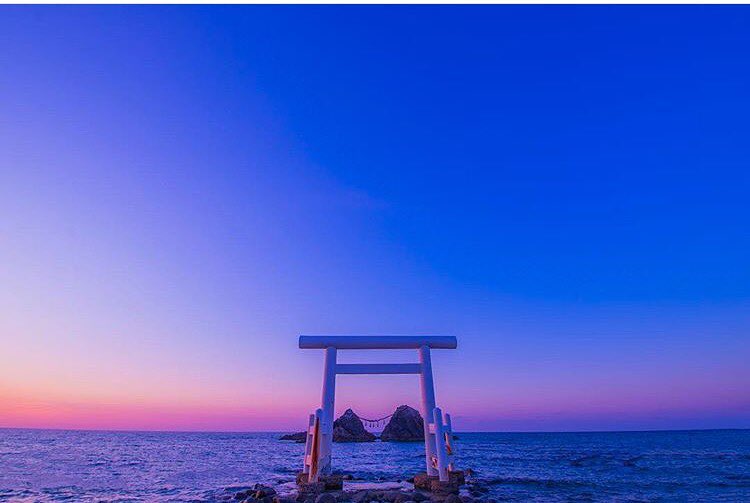
One of the most picturesque places in Fukuoka is Futamigaura Beach in Itoshima. Known for its beautiful white torii gate standing in the ocean and the iconic “married rocks” (Meoto Iwa) connected by a sacred rope, this spot is especially breathtaking at sunset. The surrounding beachside cafes and peaceful atmosphere make it a perfect escape from the city.
2. Ohori Park
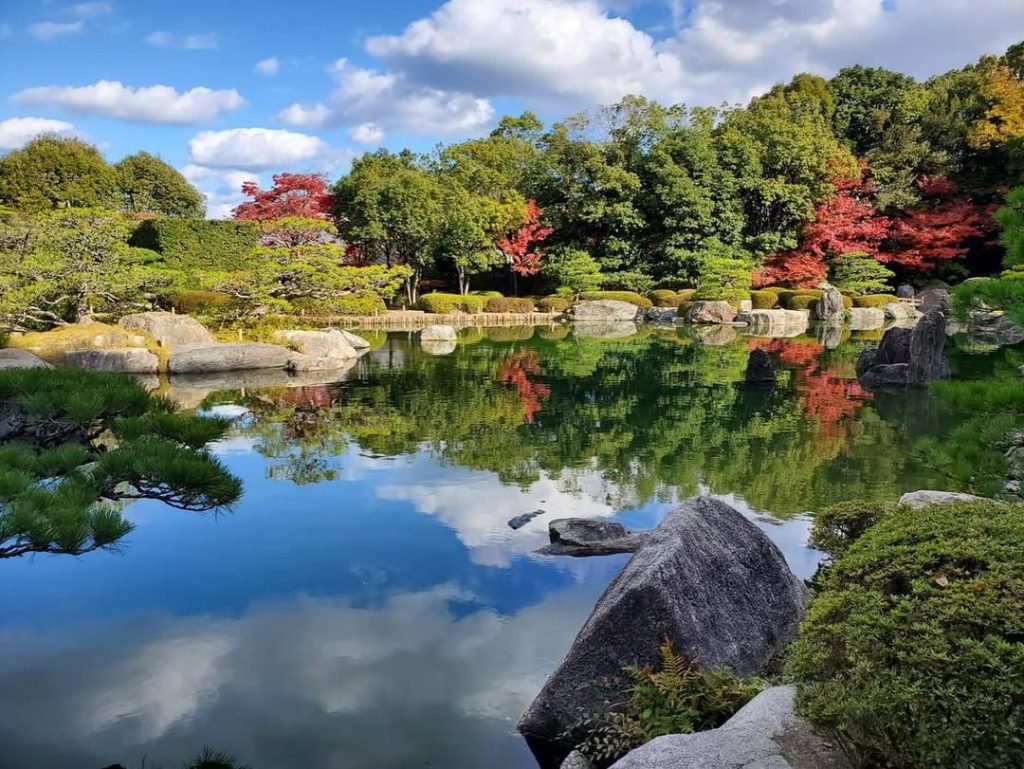

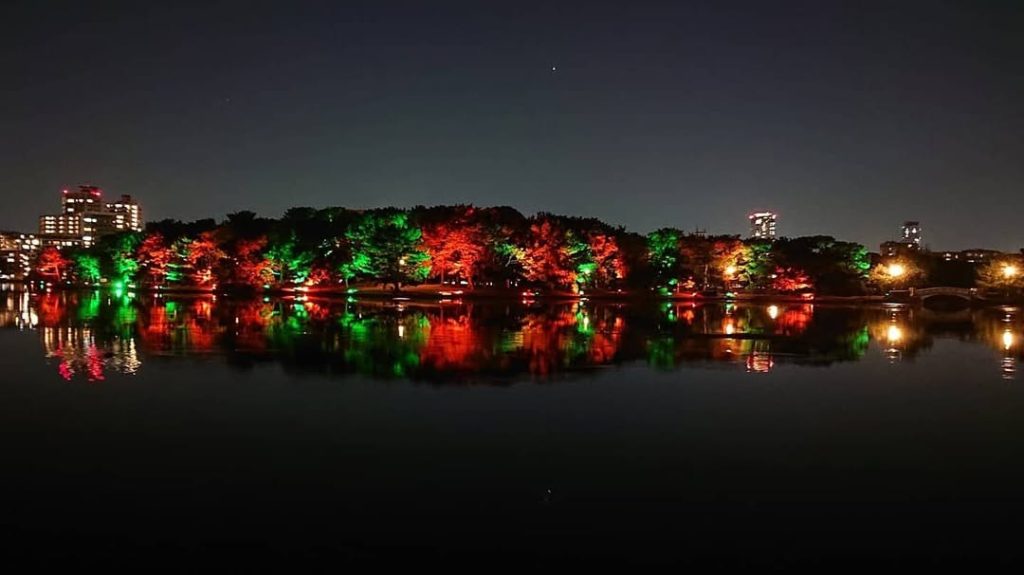
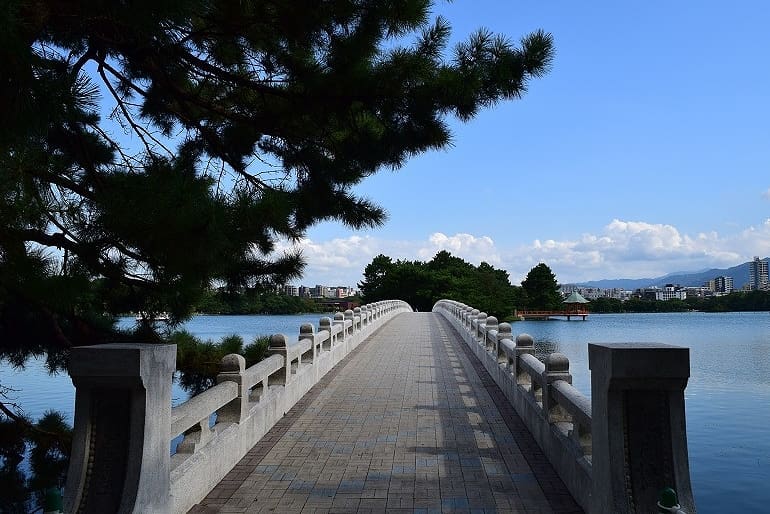
A favorite among locals and tourists alike, Ohori Park is a large, scenic park with a beautiful lake at its center. It’s an ideal place for a relaxing walk, a jog, or even a peaceful boat ride. The adjacent Japanese Garden features meticulously designed landscapes, making it one of the most serene spots in Fukuoka.
3. Atago Shrine
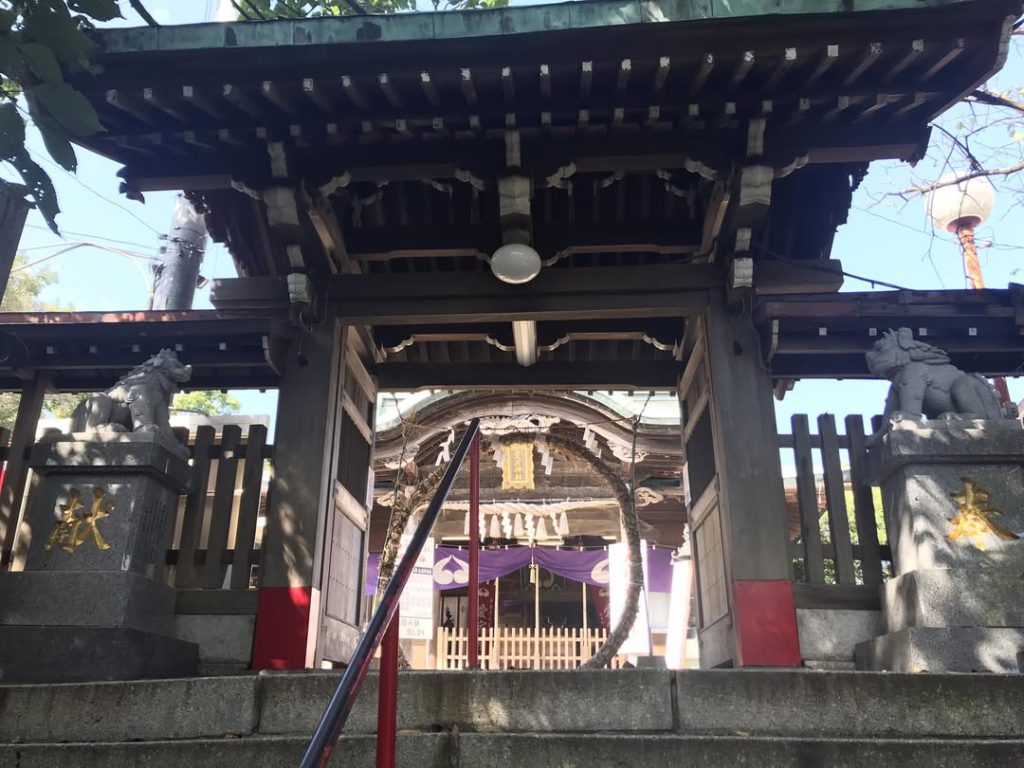
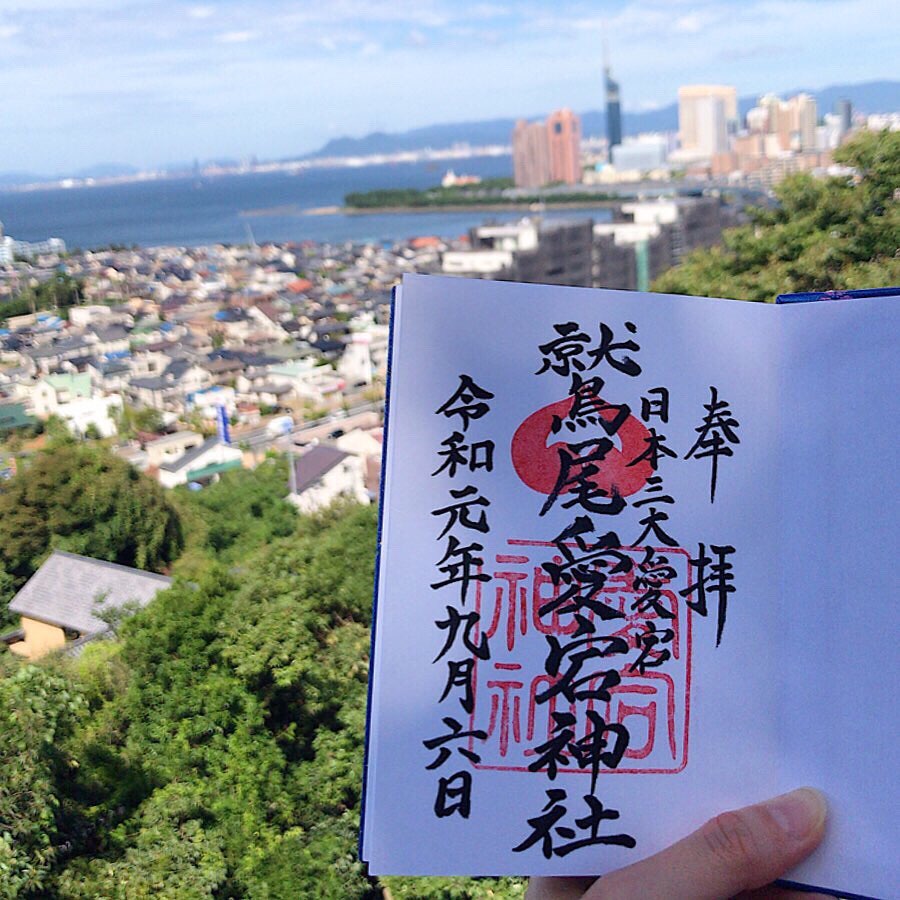
For a panoramic view of the city, Atago Shrine is a must-visit. Located on a hill, this shrine provides a stunning lookout point, especially during sunrise and sunset. It’s also one of Fukuoka’s oldest shrines, offering a quiet retreat from the busy city streets.
4. Dazaifu Tenmangu Shrine
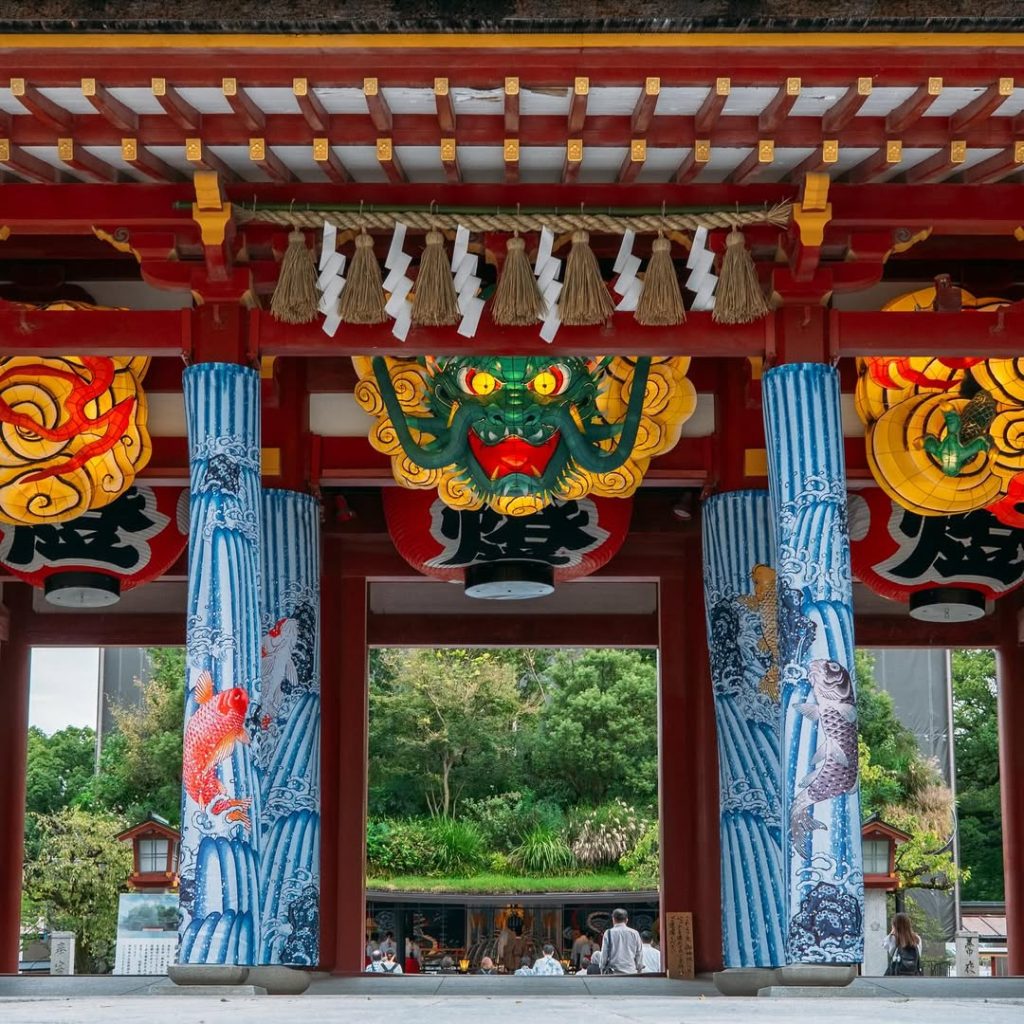
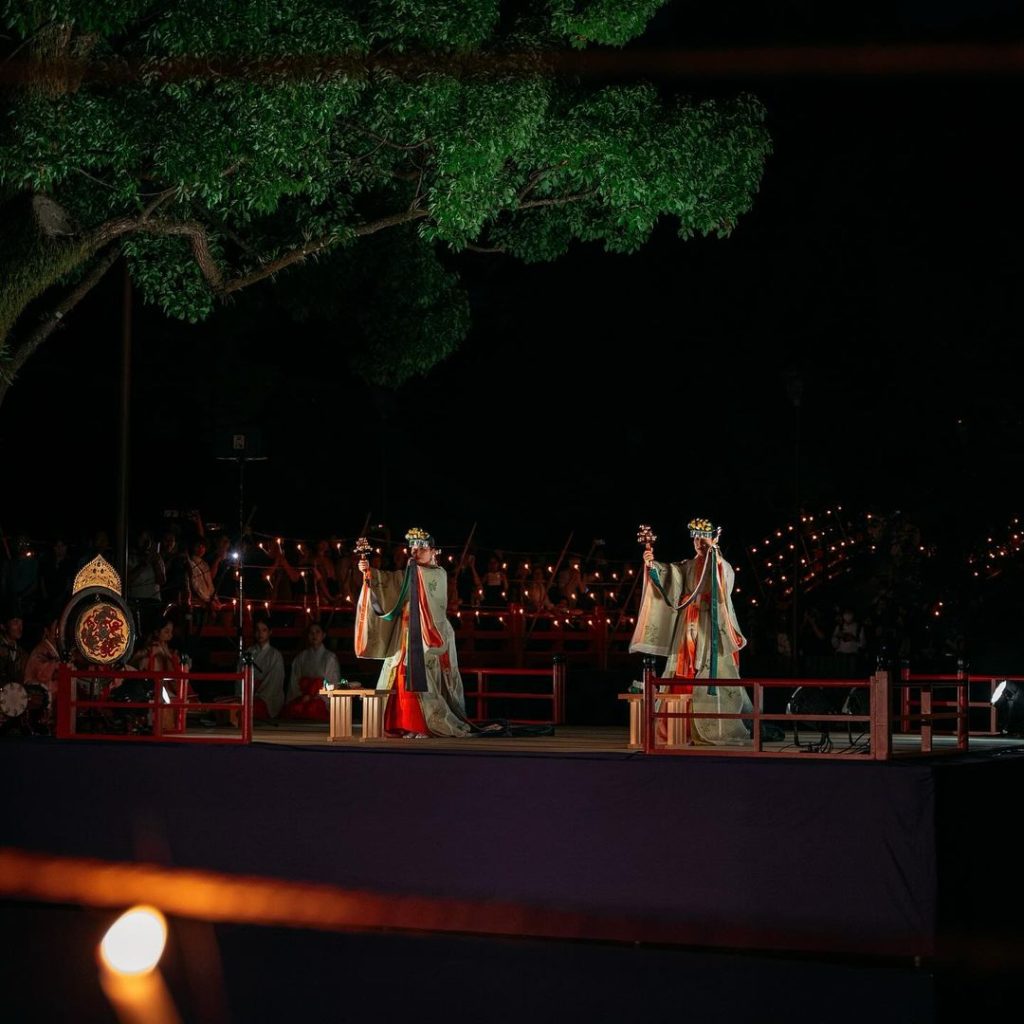
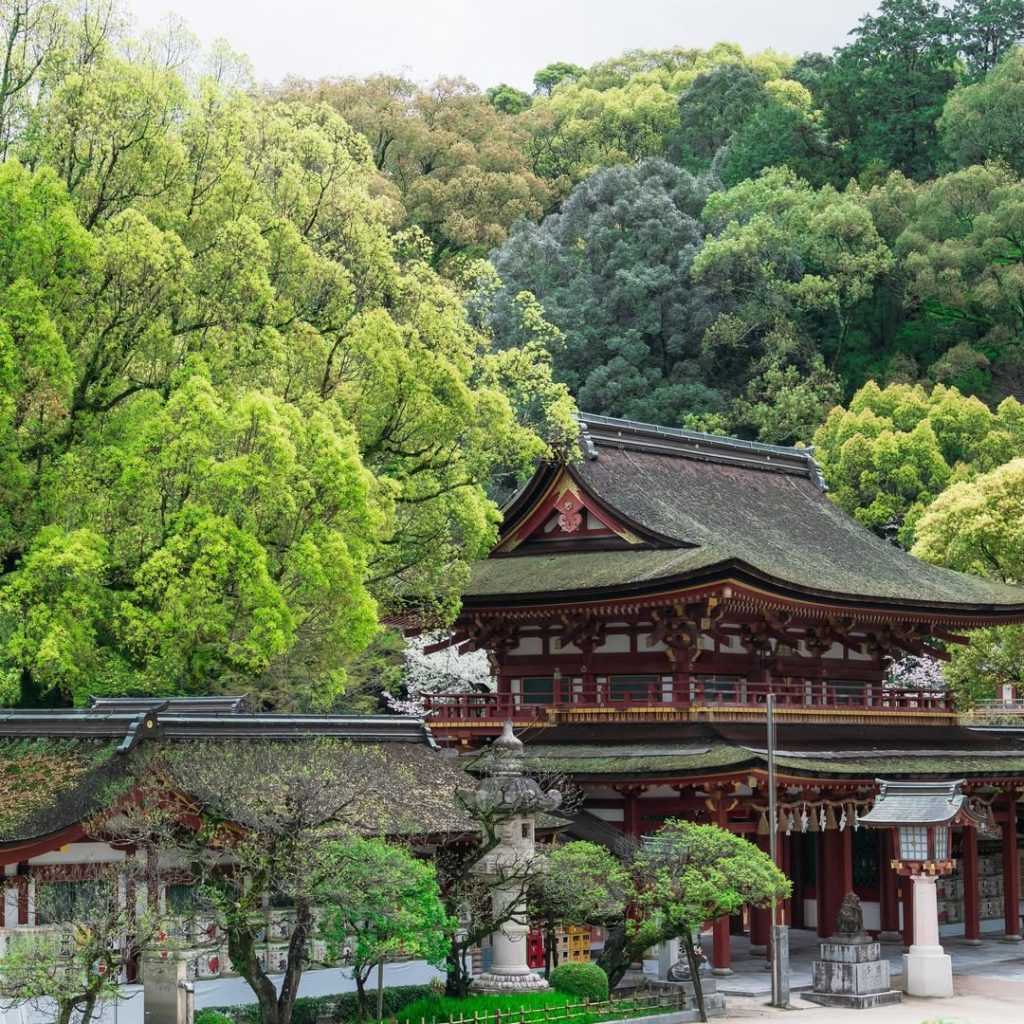
One of Kyushu’s most important shrines, Dazaifu Tenmangu is famous for its beautiful architecture and seasonal beauty. During spring, plum blossoms fill the shrine grounds with vibrant colors, while autumn brings a stunning display of red and gold leaves.
5. Kawachi Wisteria Garden
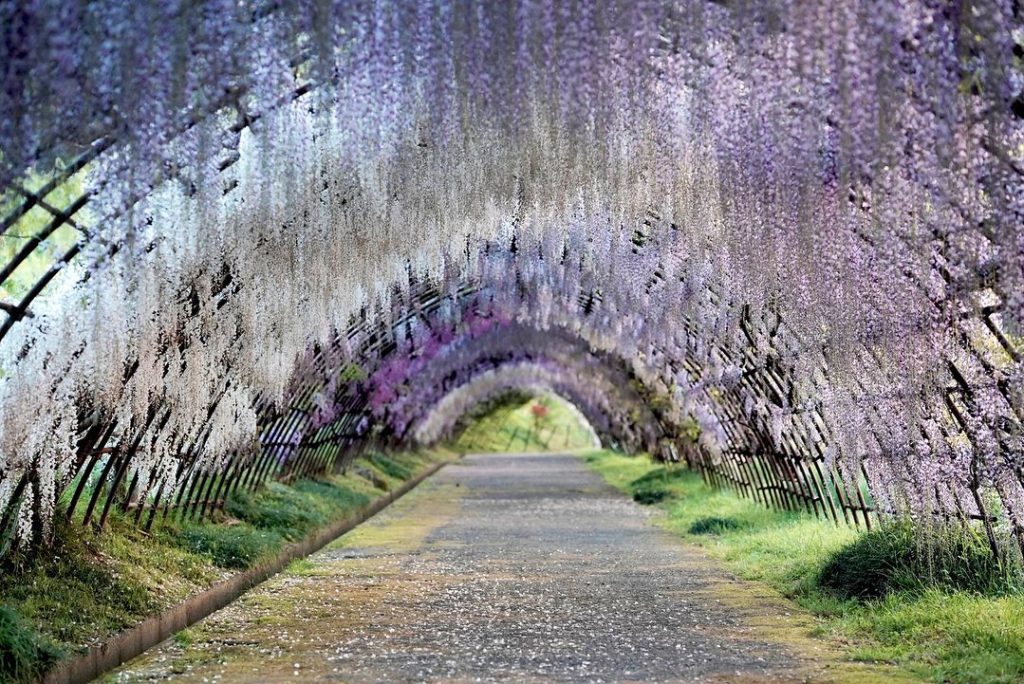
If you’re visiting Fukuoka in late April or early May, Kawachi Wisteria Garden is an absolute must. This privately owned garden, located just outside Fukuoka City, features breathtaking tunnels of purple and white wisteria flowers, creating a magical and dreamlike atmosphere.
6. Uminonakamichi Seaside Park
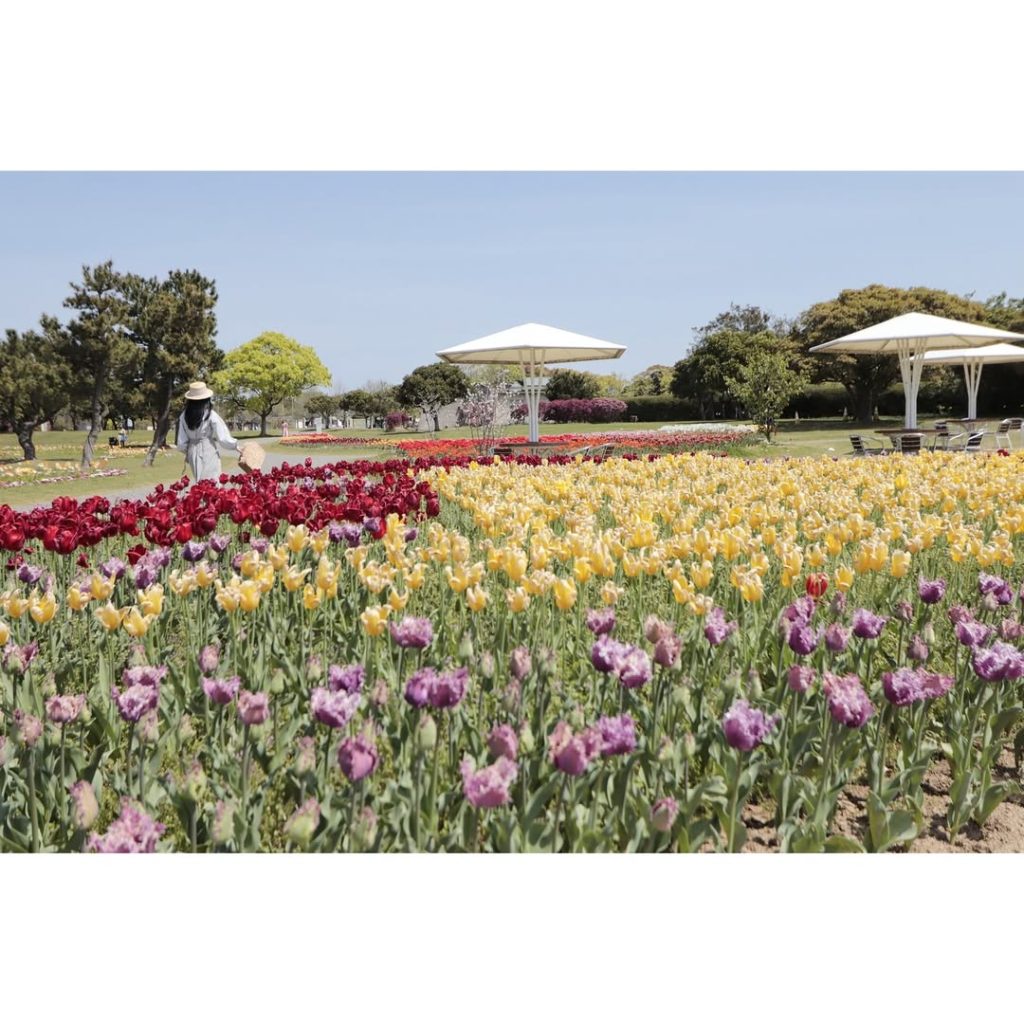
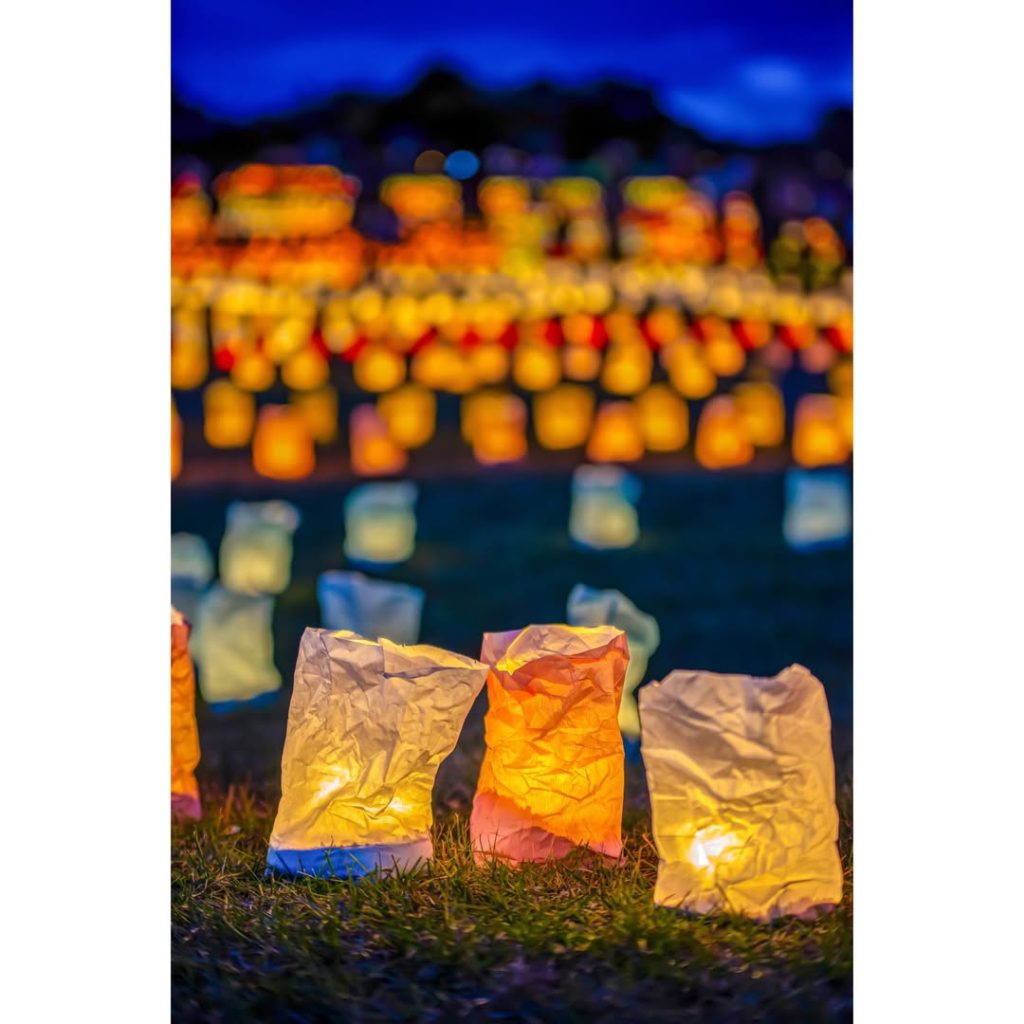
For a mix of nature and recreation, Uminonakamichi Seaside Park is a fantastic destination. This vast park features seasonal flower gardens, cycling paths, a zoo, and a seaside view, making it a great spot for families, couples, and solo travelers alike.
7. Moji Port (Mojiko Retro)
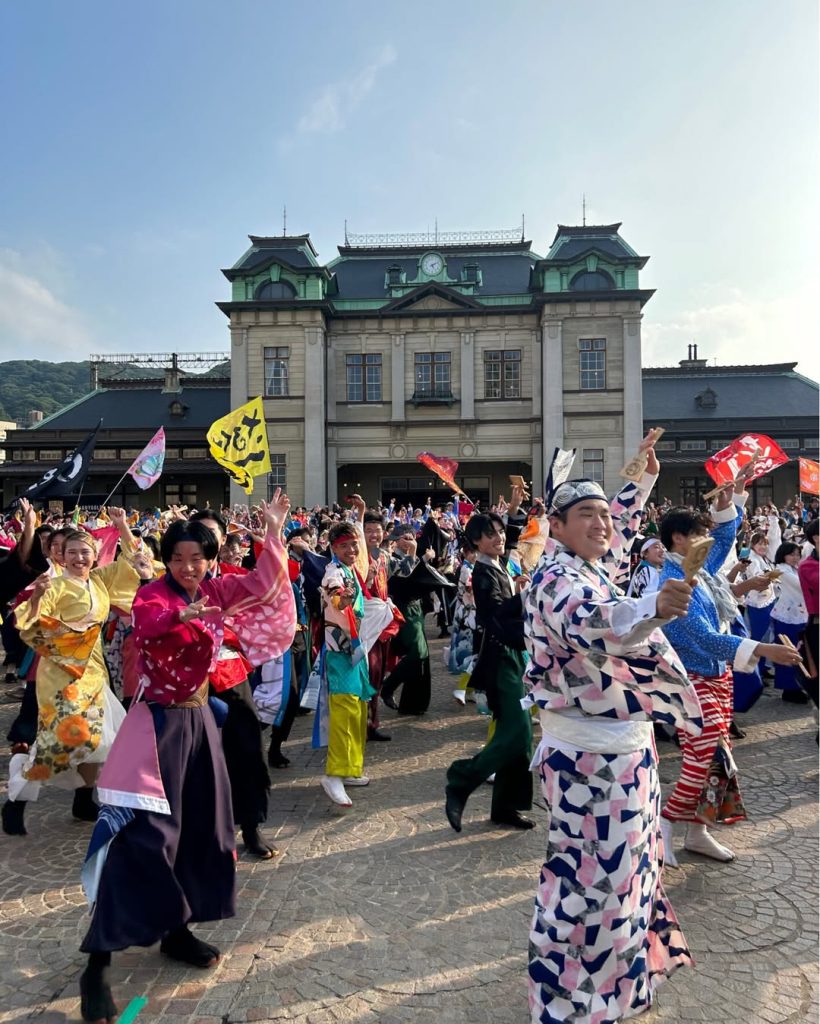
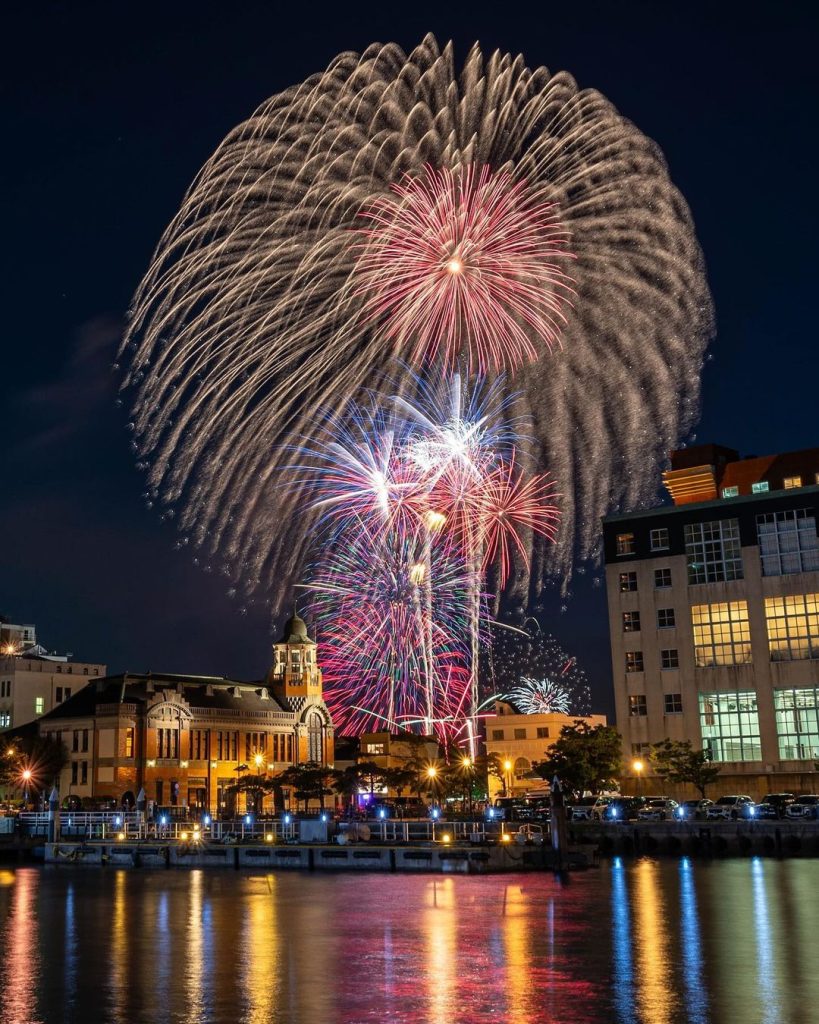
Located in nearby Kitakyushu, Moji Port is a historic waterfront area with charming European-style architecture and picturesque views. The nostalgic atmosphere, combined with delicious local cuisine such as yaki curry (grilled curry rice), makes it a unique place to visit.
Fukuoka is a city filled with both natural and cultural beauty. Whether you’re looking for a scenic day by the beach, a peaceful stroll through traditional gardens, or breathtaking city views, Fukuoka has something for every traveler.
Famous activity spots in Fukuoka
Fukuoka is a city that offers a diverse range of activities, from historical and cultural experiences to outdoor adventures and modern entertainment. Whether you’re looking to explore scenic landscapes, enjoy thrilling attractions, or immerse yourself in Japanese traditions, Fukuoka has plenty of famous activity spots to check out.
1. Fukuoka Tower
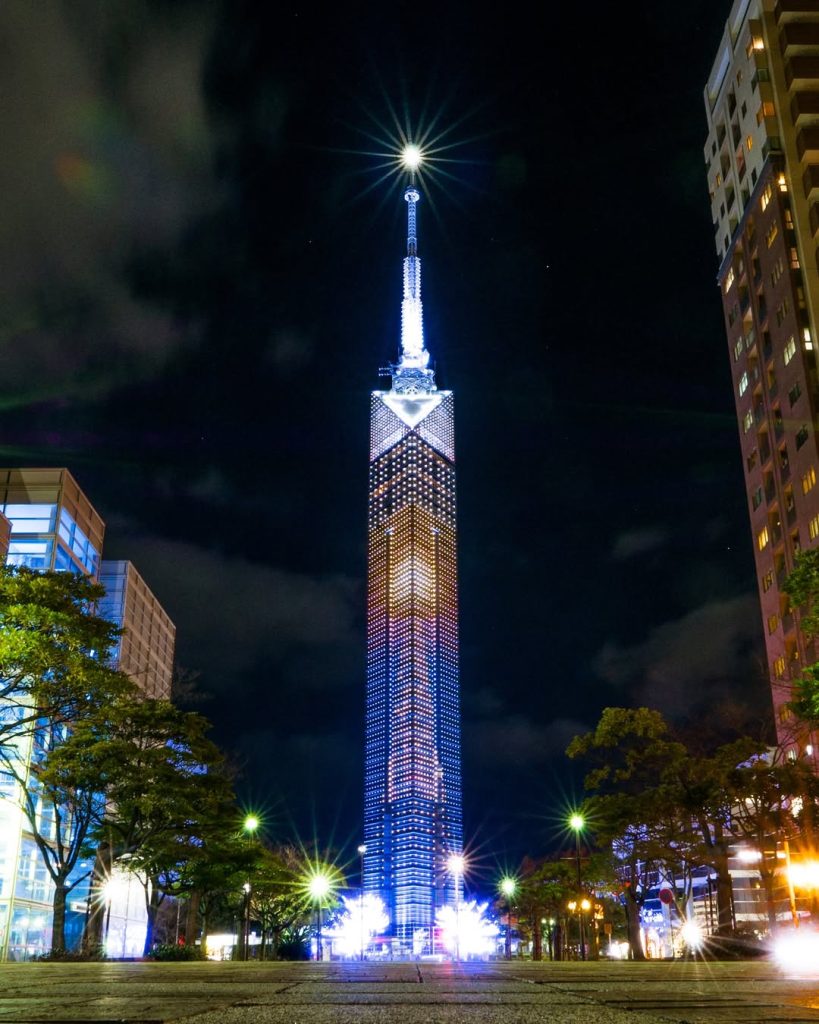
Standing at 234 meters, Fukuoka Tower is Japan’s tallest seaside tower and a must-visit landmark. Visitors can take an elevator to the observation deck, located 123 meters above ground, to enjoy a stunning 360-degree view of the city, coastline, and surrounding mountains. The tower is especially beautiful at night when it is illuminated with colorful seasonal lighting.
2. Ohori Park and Fukuoka Castle Ruins
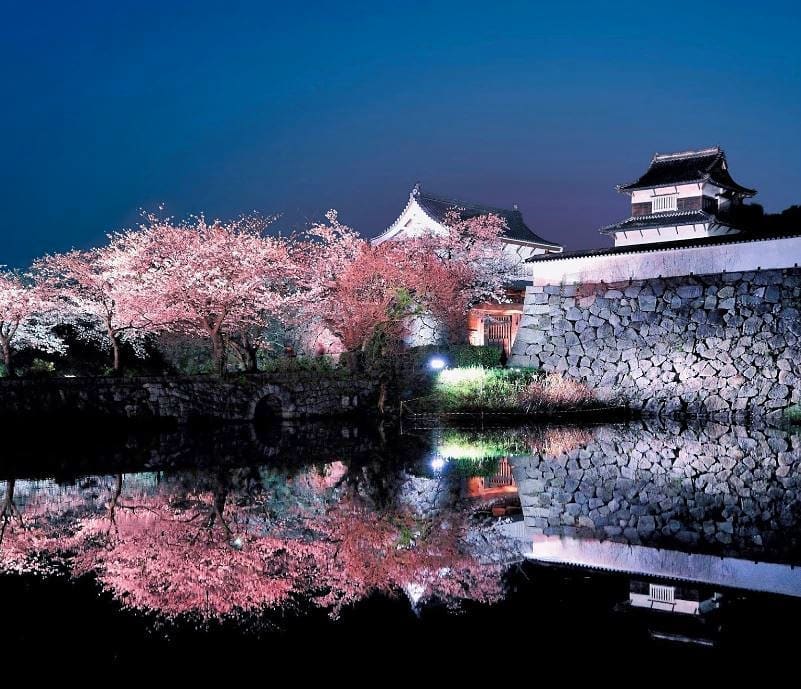
For those who enjoy nature and history, Ohori Park is a perfect spot to relax. The park features a large pond with scenic walking paths, small islands connected by bridges, and rental boats for a peaceful ride on the water. Right next to Ohori Park, you’ll find the Fukuoka Castle Ruins, where you can walk among the remnants of a historic 17th-century samurai fortress while enjoying panoramic views of the city.
3. Uminonakamichi Seaside Park
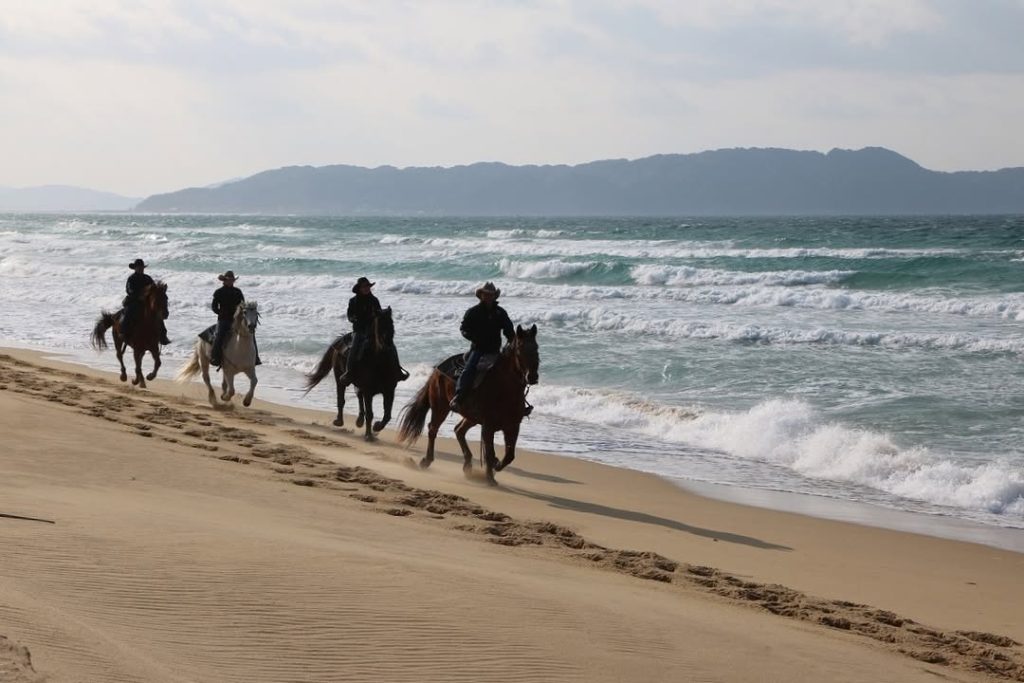
A paradise for outdoor lovers, Uminonakamichi Seaside Park is a massive recreational park featuring seasonal flower gardens, cycling trails, a zoo, and open green spaces perfect for picnics. The park is especially famous for its cherry blossoms in spring and vibrant autumn foliage, making it a beautiful destination year-round.
4. Marine World Uminonakamichi

Located within Uminonakamichi Seaside Park, Marine World is one of Kyushu’s top aquariums. It features an incredible underwater tunnel, a dolphin and sea lion show, and exhibits showcasing marine life from around Japan and the Pacific Ocean. The highlight is the large panoramic tank where you can see sharks, rays, and other sea creatures up close.
5. Canal City Hakata

For those looking for shopping, entertainment, and dining all in one place, Canal City Hakata is the go-to destination. This massive shopping complex features international and Japanese brands, a movie theater, a theater for live performances, and the famous Ramen Stadium, where visitors can sample different regional styles of ramen from across Japan.
6. PayPay Dome and TeamLab Forest
Sports fans won’t want to miss PayPay Dome, the home stadium of the Fukuoka SoftBank Hawks baseball team. Watching a game here is an exciting experience, with passionate fans, lively cheering, and a great atmosphere. Next to the stadium, you’ll find TeamLab Forest, a digital art museum where visitors can immerse themselves in interactive light and sound installations.
7. Itoshima’s Futamigaura Beach
For those who love the beach, Itoshima is the perfect escape from the city. One of its most famous spots is Futamigaura Beach, known for its “Meoto Iwa” (married rocks) connected by a sacred rope, creating a picturesque view against the ocean backdrop. The area also has trendy beachfront cafes, making it a great place to relax and enjoy the coastal scenery.
Fukuoka is full of exciting activity spots, offering something for every type of traveler. Whether you’re looking for cultural landmarks, thrilling attractions, or relaxing nature escapes, this city has it all.
Unique things to do in Fukuoka
Fukuoka is a city that blends tradition with modernity, offering a variety of unique experiences that you won’t find anywhere else in Japan. From hidden cultural gems to off-the-beaten-path adventures, here are some of the most unique things to do in Fukuoka.
1. Eat at a Yatai (Street Food Stall)
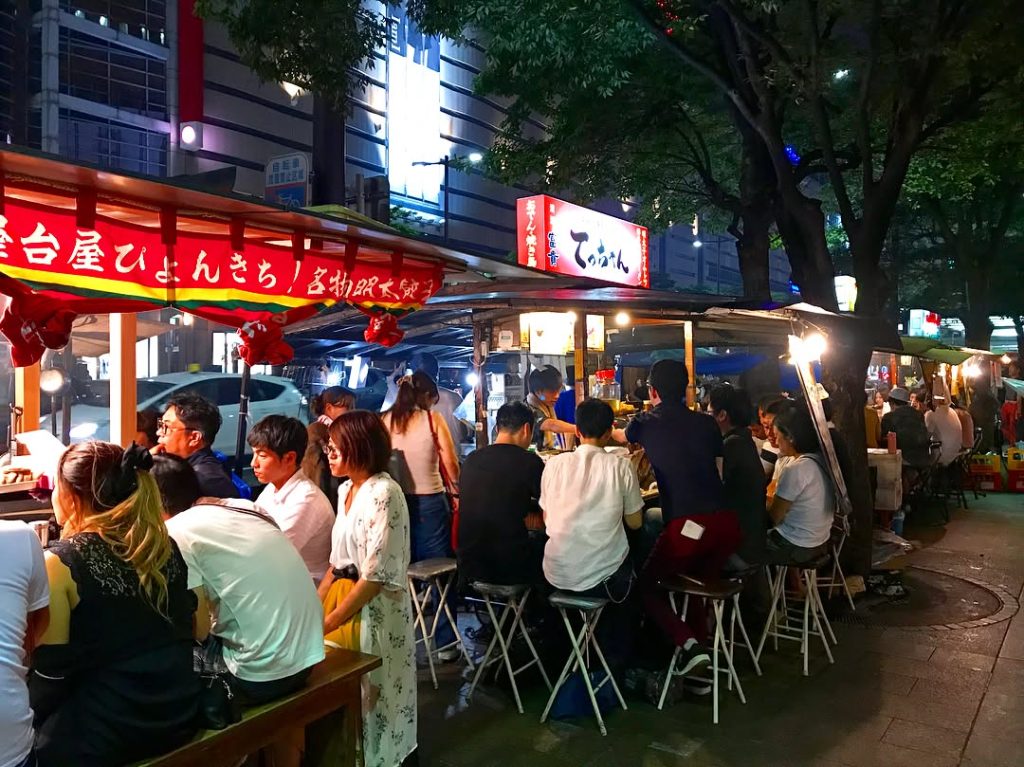
Fukuoka is famous for its yatai, small open-air food stalls that pop up in the evening, mainly in Nakasu and Tenjin. These stalls serve delicious local dishes like Hakata ramen, yakitori (grilled skewers), and oden (hot pot). Dining at a yatai is a social experience where you can interact with locals and other travelers while enjoying authentic street food.
2. Take a Boat Ride in Yanagawa
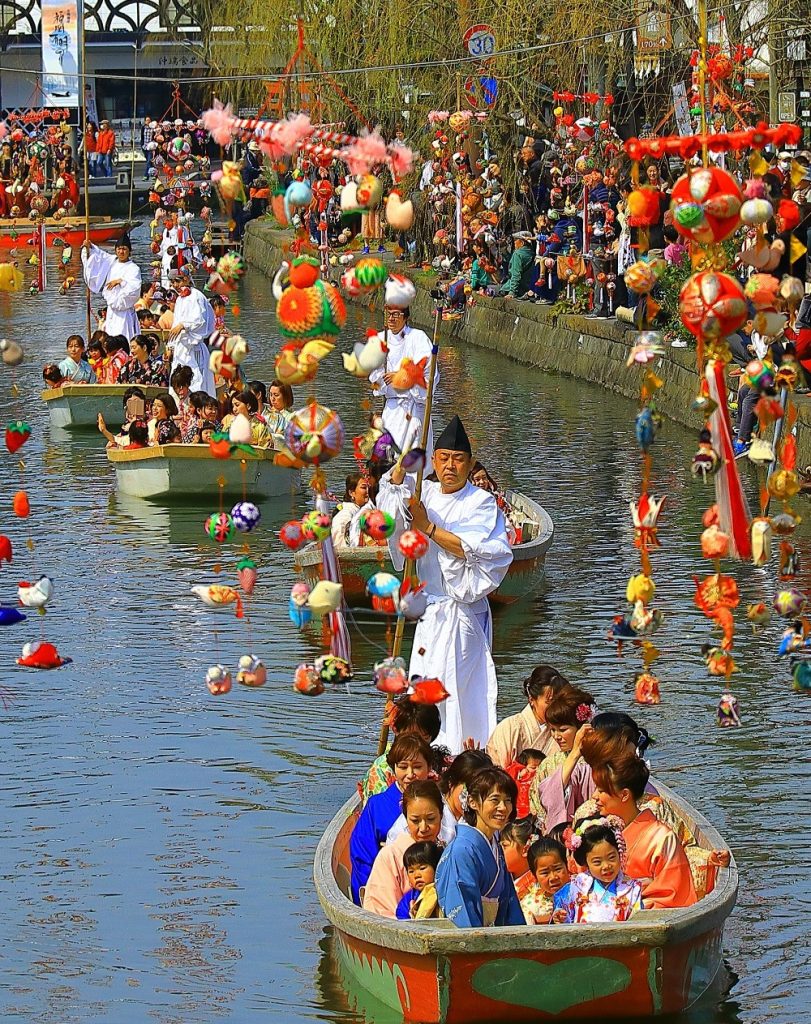
A short trip from Fukuoka, Yanagawa is known as the “Venice of Kyushu” for its picturesque canals. Visitors can take a donkobune (small boat) ride through the historic waterways while listening to boatmen sing traditional Japanese songs. The serene atmosphere and beautiful scenery make this a truly unique cultural experience.
3. Explore the Underground Shopping City of Tenjin Chikagai
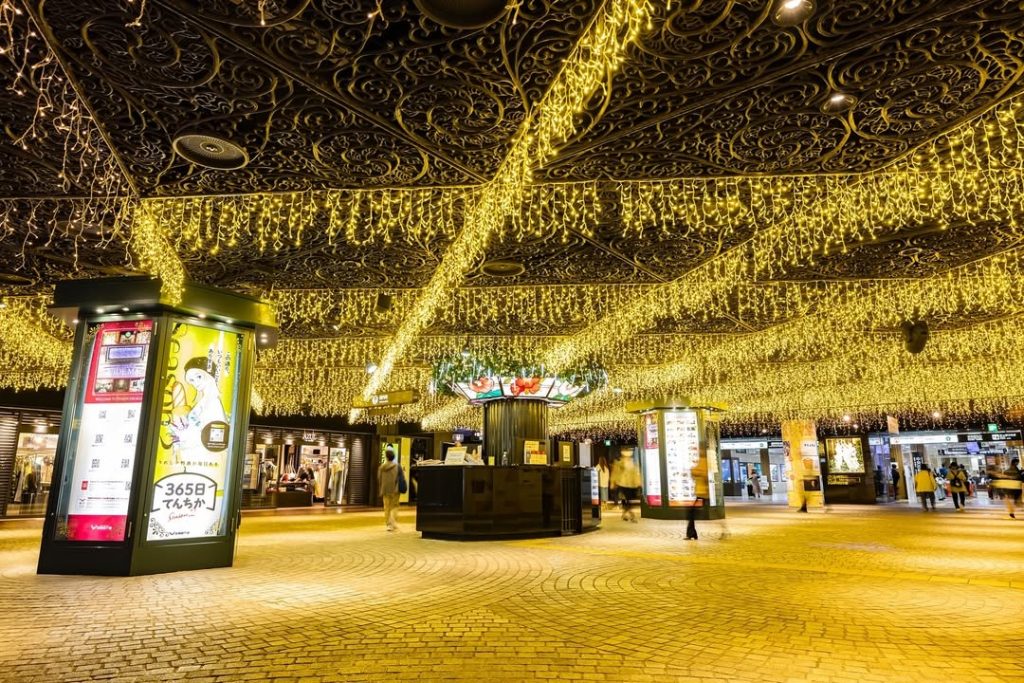
Unlike most cities, Fukuoka has an underground shopping mall that feels like a world of its own. Tenjin Chikagai stretches for nearly 600 meters and features stylish European-inspired architecture, making it one of the most aesthetically pleasing underground shopping complexes in Japan. The mall is home to boutique shops, cafes, and restaurants, offering a unique shopping experience away from the bustling streets above.
4. Visit the Giant Reclining Buddha at Nanzoin Temple
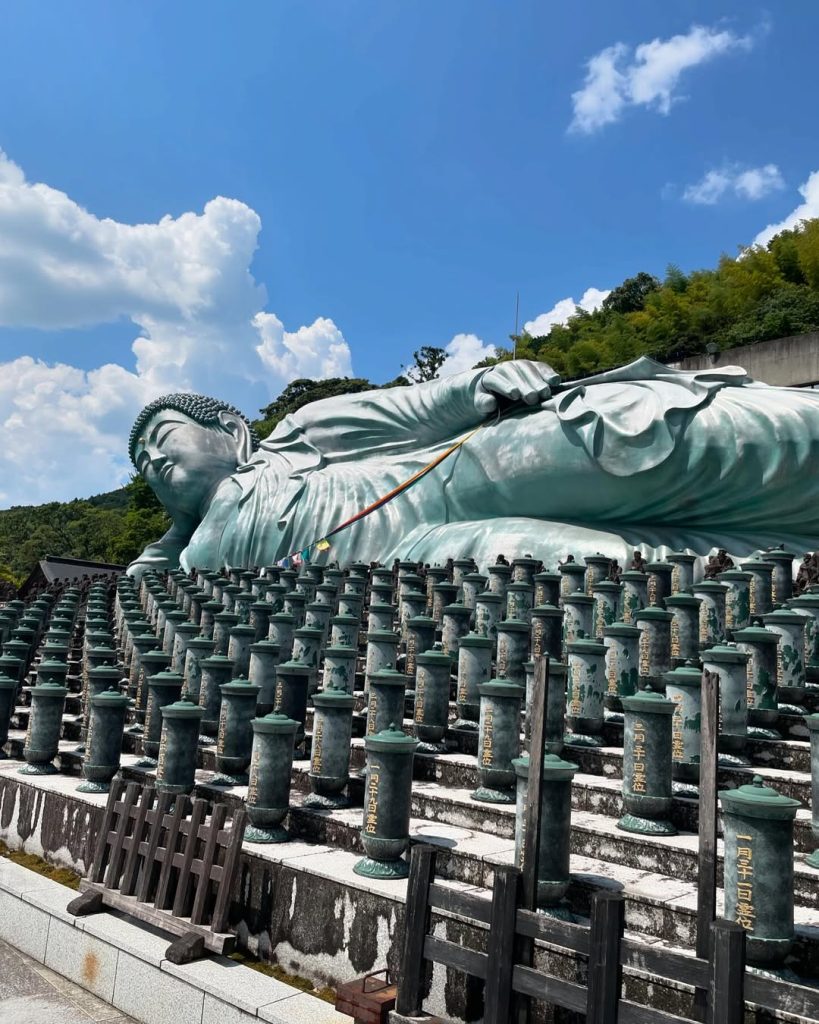
One of Japan’s most impressive Buddha statues, the Reclining Buddha of Nanzoin Temple, is a hidden gem located just outside Fukuoka. Measuring 41 meters in length, this massive bronze statue is one of the largest of its kind in the world. Visitors can explore the peaceful temple grounds and learn about the significance of this spiritual site.
5. Witness the Sunsets at Sakurai Futamigaura
Located in Itoshima, Sakurai Futamigaura is a breathtaking coastal spot famous for its white torii gate standing in the sea and twin rocks (Meoto Iwa) connected by a sacred rope. This location is particularly popular at sunset when the sky and ocean create a stunning backdrop, making it a must-visit for photographers and nature lovers.
6. Experience the Hakata Gion Yamakasa Festival
If you visit Fukuoka in July, don’t miss the Hakata Gion Yamakasa Festival, one of Japan’s most exciting summer festivals. This 700-year-old tradition features teams of men carrying massive decorative floats through the streets in a thrilling race. The energy, history, and spectacle of the festival make it a one-of-a-kind experience.
7. Try Mentaiko (Spicy Cod Roe) Cuisine
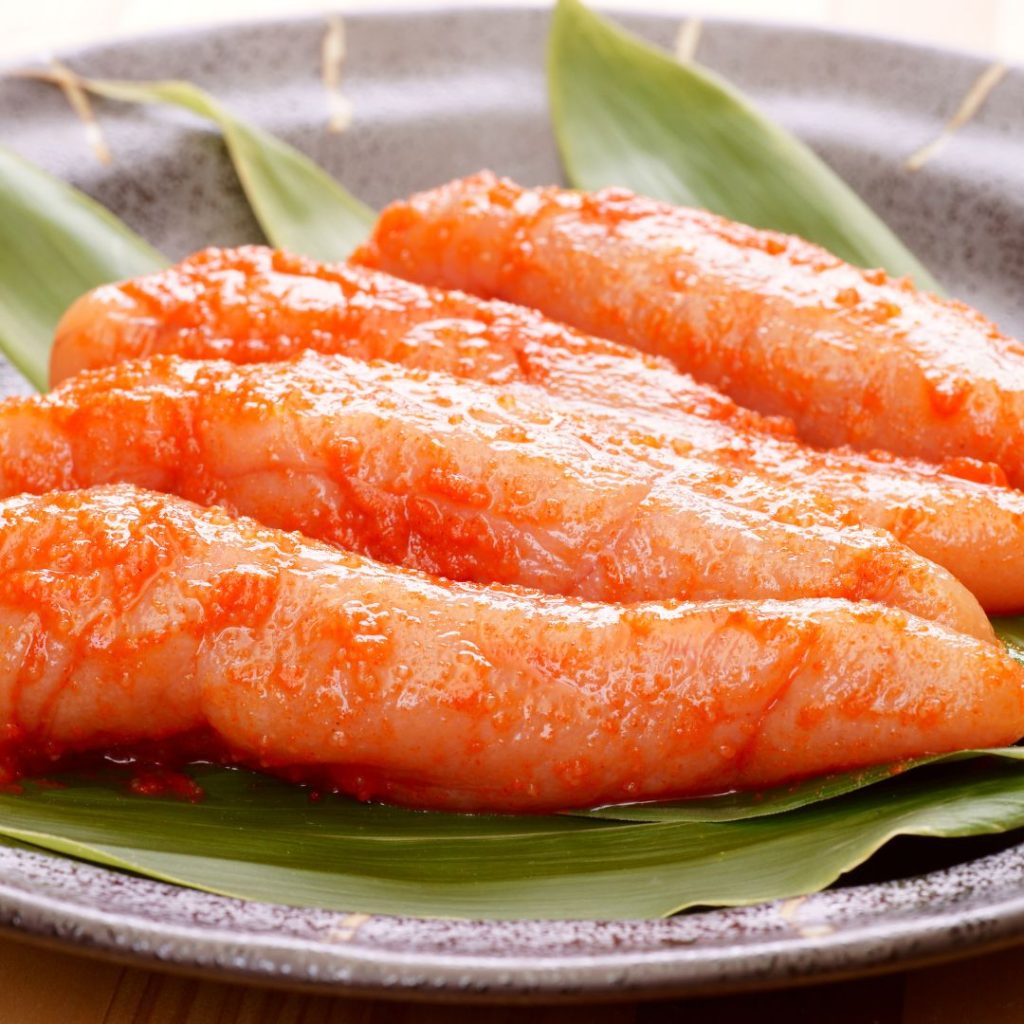
Fukuoka is famous for mentaiko, a type of spicy cod roe that is often eaten with rice or pasta. Visitors can even take part in a mentaiko-making workshop, where they can learn how this local delicacy is prepared and create their own version to take home.
8. Discover the Hidden Temples of Gion
While Kyoto’s Gion district is famous, Fukuoka has its own Gion area, home to some of the city’s most historic and lesser-known temples. Kushida Shrine, one of Fukuoka’s oldest shrines, and Shofukuji Temple, Japan’s first Zen temple, offer peaceful retreats from the busy city streets and provide insight into Fukuoka’s deep-rooted cultural heritage.
Fukuoka is full of surprises, offering travelers the chance to experience both traditional and modern Japan in a way that few other cities can. Whether you’re trying new foods, exploring hidden temples, or taking in breathtaking coastal views, there’s no shortage of unique things to do in this vibrant city.
What things to do in Fukuoka?Beginner’s Guide: Food & Travel Tips
・What food is Fukuoka famous for?
・How many days are needed in Fukuoka?
・How much is the bullet train from Tokyo to Fukuoka?
・Best areas to stay in Fukuoka
・Exploring Fukuoka’s local culture
What food is Fukuoka famous for?
Fukuoka is widely regarded as one of Japan’s top food destinations, known for its rich culinary traditions and unique local flavors. As the birthplace of Hakata ramen, one of the most famous styles of ramen in Japan, and the home of mentaiko (spicy cod roe), Fukuoka offers a diverse and delicious food scene that attracts both locals and tourists alike. Here are some of the must-try dishes when visiting Fukuoka.
1. Hakata Ramen

If you visit Fukuoka, you cannot leave without trying Hakata ramen. This style of ramen is characterized by its rich and creamy tonkotsu (pork bone) broth, thin straight noodles, and toppings such as chashu (braised pork belly), green onions, and wood ear mushrooms. The broth is made by slowly simmering pork bones for hours, giving it a deep, umami-packed flavor. Many ramen shops in Fukuoka offer kaedama, which allows customers to get an extra serving of noodles for their leftover broth. Some of the most famous Hakata ramen restaurants include Ichiran, Ippudo, and Hakata Issou.
2. Mentaiko (Spicy Cod Roe)
Fukuoka is the birthplace of mentaiko, a delicacy made from pollock roe that has been marinated in spicy sauce. It is commonly eaten on top of rice, inside onigiri (rice balls), or as a topping for pasta. Some restaurants even offer mentaiko-making experiences, where visitors can learn about the process and create their own flavored roe. If you want to bring home a taste of Fukuoka, many souvenir shops sell packaged mentaiko in different flavors.
3. Yatai (Street Food Stalls)
One of the most unique dining experiences in Fukuoka is eating at yatai, traditional open-air food stalls that appear in the evening around Nakasu and Tenjin. These small stalls offer a variety of local dishes, including yakitori (grilled skewers), tempura, oden (hot pot), and Hakata-style gyoza (bite-sized dumplings). Eating at a yatai is not just about the food—it’s also a social experience where you can interact with locals and other travelers in a casual setting.
4. Mizutaki (Chicken Hot Pot)
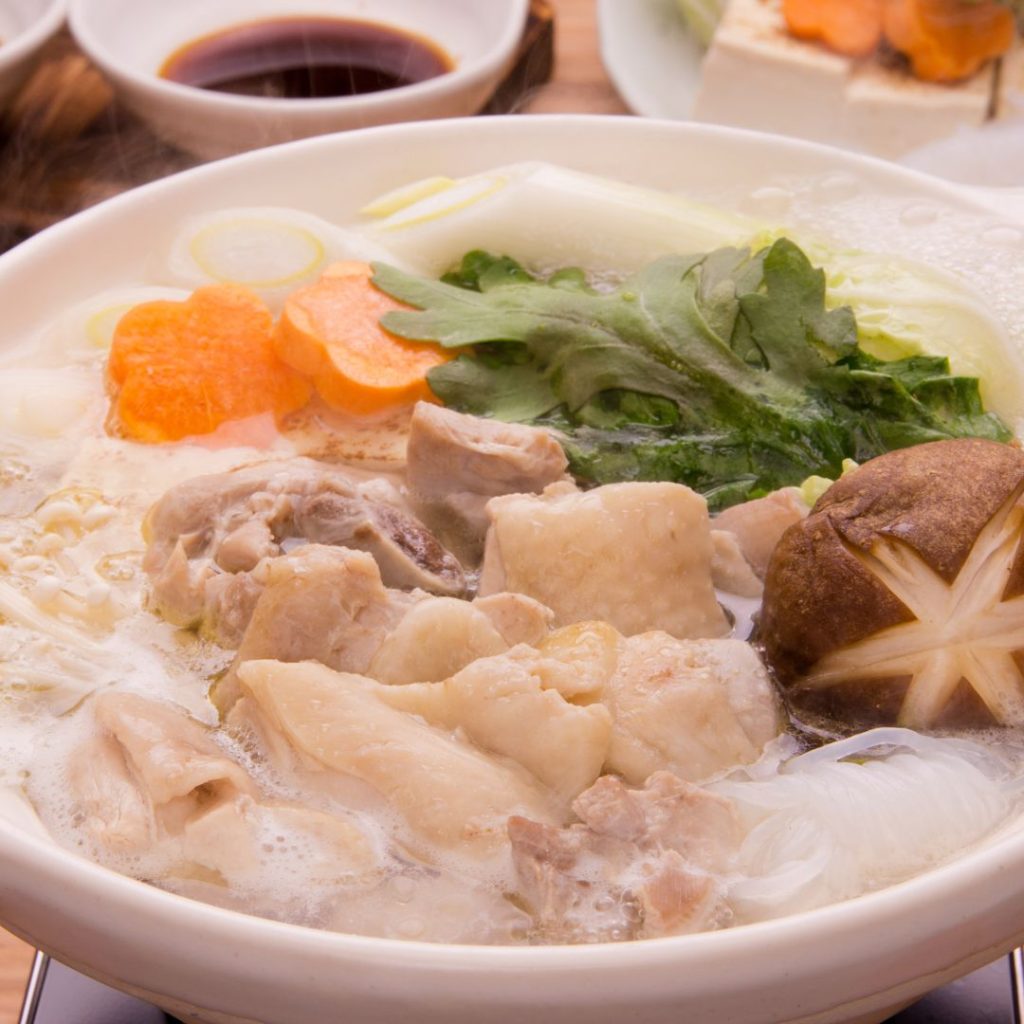
For a comforting and hearty meal, try mizutaki, a traditional Fukuoka hot pot made with slow-simmered chicken broth, fresh vegetables, and tender chicken pieces. Unlike other hot pots, mizutaki is not heavily seasoned, allowing diners to enjoy the natural flavors of the ingredients. The dish is often served with a light ponzu dipping sauce. Some of the best mizutaki restaurants can be found in Fukuoka’s Hakata district.
5. Goma Saba (Sesame Mackerel)
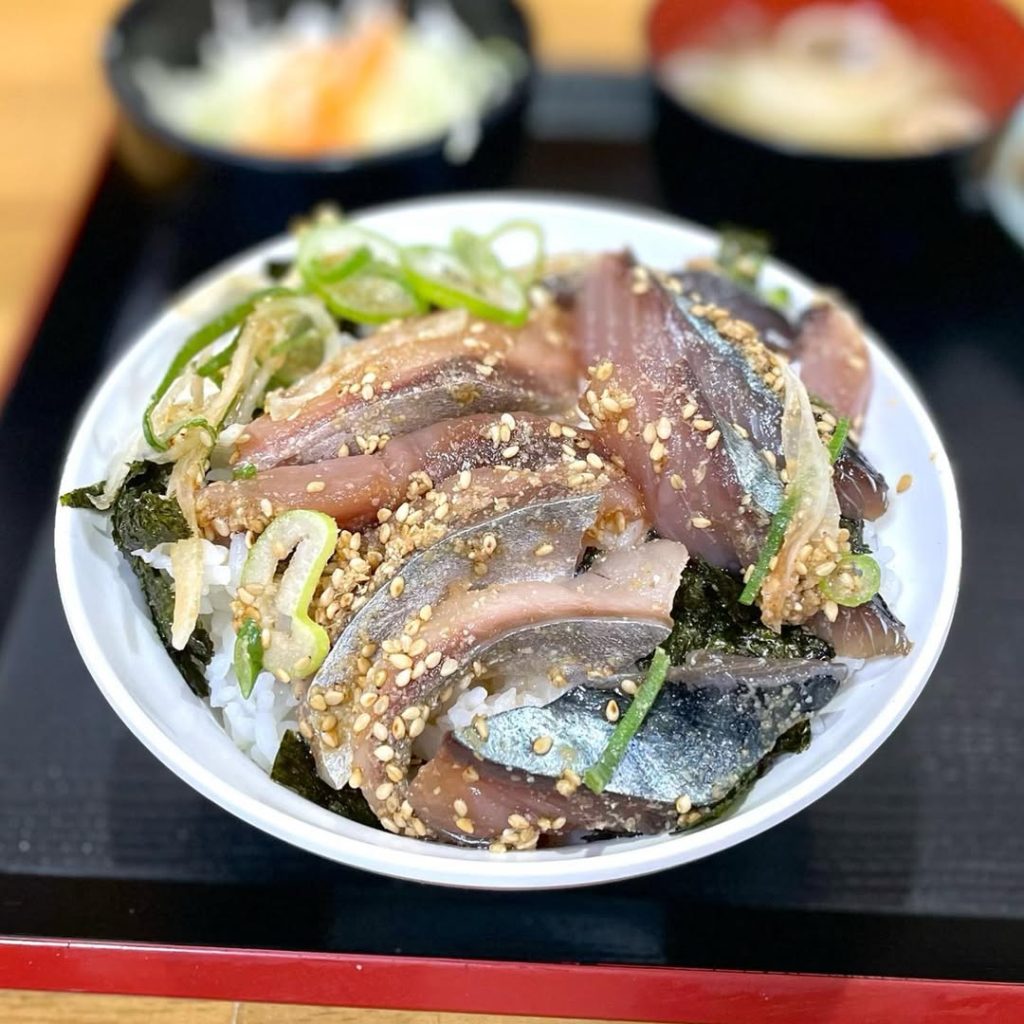
Another Fukuoka specialty is goma saba, which consists of fresh mackerel sashimi marinated in sesame sauce and soy sauce. This dish is typically served as an appetizer or alongside a bowl of rice. Since mackerel spoils quickly, it is best eaten fresh in coastal areas like Fukuoka, where the fish is caught daily.
6. Umegae Mochi
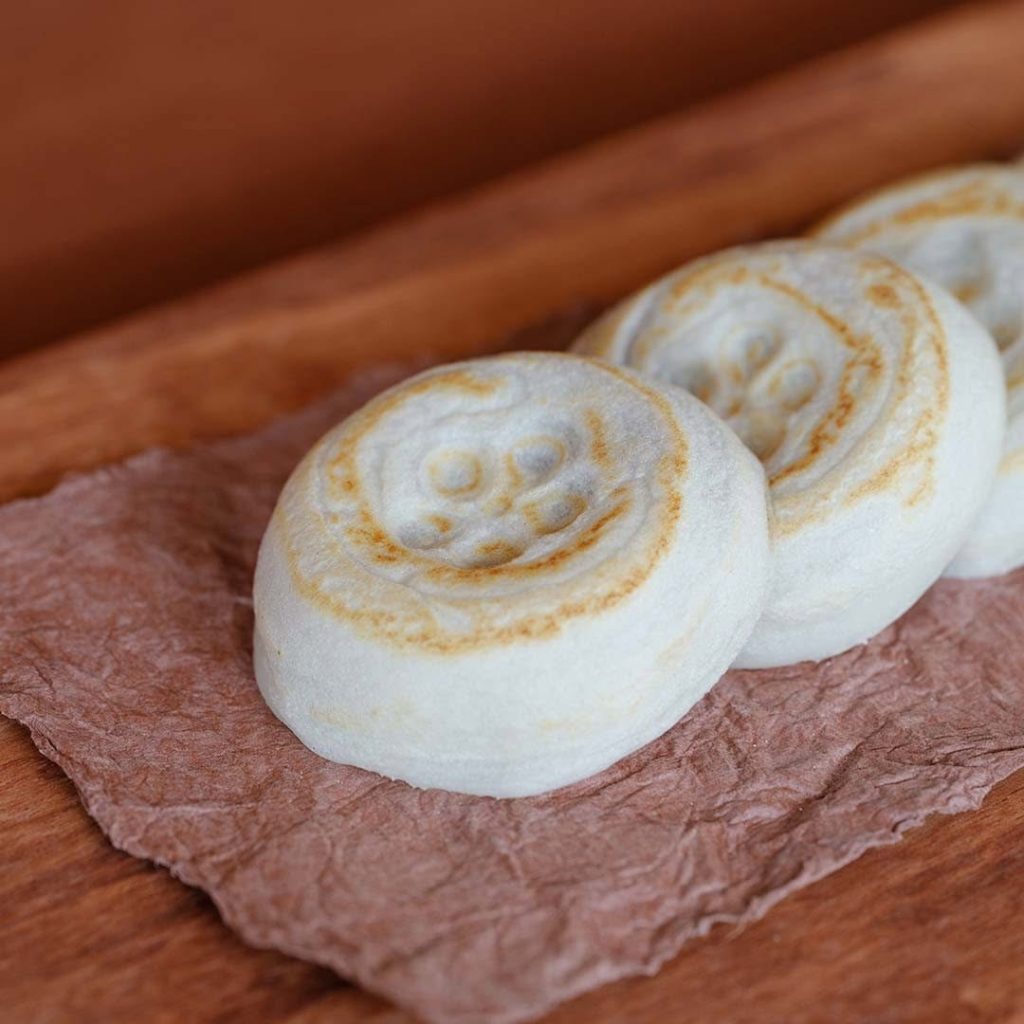
For those with a sweet tooth, umegae mochi is a popular Fukuoka dessert. This grilled rice cake is filled with sweet red bean paste and is especially famous in Dazaifu, where visitors can enjoy it while exploring the historic shrine area. The crispy exterior and warm, soft filling make it a perfect snack.
From rich and flavorful ramen to fresh seafood dishes and traditional sweets, Fukuoka’s food culture is deeply rooted in local ingredients and time-honored recipes. Whether you’re a fan of savory or sweet, there’s something for everyone to enjoy in this vibrant culinary hub.
How many days are needed in Fukuoka?
The ideal number of days to spend in Fukuoka depends on your travel style and interests. However, for most visitors, 2 to 3 days is the perfect amount of time to explore the city’s highlights, enjoy its famous cuisine, and take a few short day trips.
1. One-Day Itinerary – Quick Stop in Fukuoka
If you’re on a tight schedule and only have one day in Fukuoka, focus on the city’s top attractions:
- Morning: Explore Kushida Shrine and the historic Gion area.
- Afternoon: Have Hakata ramen for lunch, then visit Ohori Park and Fukuoka Castle Ruins.
- Evening: Experience the lively atmosphere of Nakasu’s yatai stalls, where you can try street food and enjoy the nightlife.
2. Two-Day Itinerary – A Deeper Dive
With two days, you can explore Fukuoka’s culture and natural beauty:
- Day 1: Follow the one-day itinerary.
- Day 2: Visit Itoshima’s beautiful beaches, take in the sunset at Sakurai Futamigaura, or explore the Uminonakamichi Seaside Park.
3. Three-Day Itinerary – Exploring More of Kyushu
A three-day stay allows for additional day trips outside of Fukuoka:
- Day 1 & 2: Follow the two-day itinerary.
- Day 3: Take a day trip to Dazaifu Tenmangu Shrine, the Nanzoin Reclining Buddha, or the historic castle town of Karatsu.
If you have more than three days, consider taking longer trips to places like Nagasaki, Kumamoto, or Beppu’s hot springs.
Fukuoka is a compact yet diverse city, making it an ideal destination for both short and extended stays. Whether you’re visiting for just one day or planning a longer trip, you’ll find plenty to see, do, and eat in this dynamic city.
How much is the bullet train from Tokyo to Fukuoka?
Traveling from Tokyo to Fukuoka by bullet train (Shinkansen) is a convenient and comfortable option, especially for those who prefer scenic travel over flying. The journey takes about 5 hours on the fastest train and varies in price depending on ticket type and seat class.
1. Ticket Prices for the Shinkansen
The most commonly used bullet train between Tokyo and Fukuoka is the Nozomi on the Tokaido-Sanyo Shinkansen line. Here’s an overview of the ticket prices:
| Ticket Type | Price (JPY) | Price (USD, Approx.) |
|---|---|---|
| Standard Seat | ¥23,000 – ¥24,000 | $160 – $170 |
| Green Car (First Class) | ¥31,000 – ¥33,000 | $215 – $230 |
| Gran Class (Luxury) | ¥40,000+ | $280+ |
Prices may vary slightly depending on the travel season and reservation status.
2. Ways to Save on the Bullet Train
- Japan Rail Pass: If you plan to travel across Japan, purchasing a JR Pass can save money. The 7-day JR Pass costs about ¥50,000 ($340) and allows unlimited rides on most Shinkansen trains, except Nozomi and Mizuho services.
- Early Reservations: Some discount tickets are available through special promotions or by booking early on platforms like JR West’s Smart EX.
- Platt Kodama: The Kodama train is slower but offers cheaper fares.
3. Alternative Travel Options
For budget-conscious travelers, consider:
- Flying: A domestic flight from Tokyo to Fukuoka takes about 1.5 hours, with fares as low as ¥5,000 – ¥10,000 ($35 – $70) on budget airlines like Peach or Jetstar.
- Night Bus: The cheapest but longest option, night buses take 12–14 hours and cost ¥8,000 – ¥12,000 ($55 – $85).
Overall, while the Shinkansen is the most comfortable and scenic option, those looking to save money may prefer domestic flights or discount train tickets.
Best areas to stay in Fukuoka
Fukuoka offers a wide range of accommodation options, from luxury hotels to budget-friendly hostels, making it a great destination for any type of traveler. Choosing the right area to stay in can enhance your experience, whether you’re here for sightseeing, food, or nightlife. Here are the best areas to stay in Fukuoka based on different travel preferences.
1. Hakata – Best for First-Time Visitors and Convenience
Hakata is the transportation hub of Fukuoka, home to Hakata Station, which serves as the main gateway for Shinkansen (bullet trains), local trains, and buses. It’s also just a few minutes away from Fukuoka Airport, making it the most convenient area for travelers.
Why Stay in Hakata?
- Easy access to the Shinkansen, subway, and buses
- Close to Hakata Ramen restaurants and Yatai food stalls
- Walking distance to Kushida Shrine and Canal City Hakata
Recommended Hotels in Hakata
- Luxury: Hotel Nikko Fukuoka – High-end comfort with excellent service
- Mid-Range: Tokyu Stay Hakata – Convenient location and modern amenities
- Budget: WeBase Hakata – Great for backpackers and budget travelers
2. Tenjin – Best for Shopping and Nightlife
Tenjin is the vibrant shopping and entertainment district of Fukuoka, filled with malls, restaurants, and bars. If you love fashion, gourmet food, and nightlife, this is the place to be.
Why Stay in Tenjin?
- Home to major shopping centers like Tenjin Chikagai (Underground Mall) and IMS
- Bustling nightlife with bars, izakayas, and live music venues
- Central location with easy access to other parts of the city
Recommended Hotels in Tenjin
- Luxury: Solaria Nishitetsu Hotel – Stylish and modern with a great city view
- Mid-Range: Plaza Hotel Premier – Affordable and close to shopping areas
- Budget: Montan Hakata Hostel – Clean, comfortable, and budget-friendly
3. Nakasu – Best for Food Lovers and Riverside Views
Nakasu is Fukuoka’s famous entertainment district, known for its yatai food stalls and riverside atmosphere. It’s an ideal location for travelers who want to experience Fukuoka’s local nightlife and dining scene.
Why Stay in Nakasu?
- Famous for its yatai (street food stalls) along the river
- Lively atmosphere with bars, izakayas, and entertainment options
- Scenic riverside views and easy access to Canal City Hakata
Recommended Hotels in Nakasu
- Luxury: Grand Hyatt Fukuoka – Elegant and close to entertainment spots
- Mid-Range: Hotel Resol Trinity Hakata – Comfortable rooms with great access
- Budget: Nine Hours Nakasukawabata – Capsule hotel for a unique experience
4. Daimyo – Best for Trendy Cafés and Local Boutiques
Daimyo is a hip and stylish area, filled with independent shops, cozy cafés, and boutique hotels. It’s a great spot for young travelers and those who love exploring unique, artistic neighborhoods.
Why Stay in Daimyo?
- Trendy atmosphere with local boutiques, record shops, and vintage stores
- Plenty of Instagrammable cafés and craft coffee shops
- Walking distance to Tenjin’s shopping streets and nightlife
Recommended Hotels in Daimyo
- Luxury: The Lively Fukuoka – Stylish boutique hotel with modern design
- Mid-Range: Editing.
- Budget: Editing.
5. Momochi – Best for Families and Beach Lovers
If you prefer a relaxed seaside environment, Momochi is a great choice. This area is home to Fukuoka Tower, beaches, and family-friendly attractions.
Why Stay in Momochi?
- Close to Fukuoka Tower, Momochi Beach, and Uminonakamichi Seaside Park
- Quieter atmosphere, ideal for families and couples
- Easy access to Fukuoka Dome (PayPay Dome) for baseball fans
Recommended Hotels in Momochi
- Luxury: Hilton Fukuoka Sea Hawk – Ocean-view rooms and resort-style amenities
- Mid-Range: Seaside Hotel Twins Momochi – Affordable stay near the beach
- Budget: Guesthouse Hokorobi – Budget-friendly and relaxed atmosphere
Each of these areas offers something unique, so choosing the right place to stay depends on your travel style and interests. Whether you’re looking for shopping, food, nightlife, or a peaceful retreat, Fukuoka has the perfect spot for you.
Exploring Fukuoka’s local culture
Fukuoka has a rich cultural heritage, blending ancient traditions with modern influences. From historic shrines to vibrant festivals, this city offers a unique glimpse into Kyushu’s distinct identity.
1. Visiting Shrines and Temples
Fukuoka has several historic shrines and temples that reflect the city’s deep spiritual roots.
- Kushida Shrine – One of Fukuoka’s oldest shrines, famous for its role in the Hakata Gion Yamakasa Festival.
- Dazaifu Tenmangu Shrine – Dedicated to Sugawara no Michizane, the god of learning, making it a popular spot for students.
- Tocho-ji Temple – Home to a giant wooden Buddha statue, one of the largest in Japan.
2. Experiencing Traditional Festivals
Fukuoka hosts lively festivals throughout the year, showcasing local traditions and community spirit.
- Hakata Gion Yamakasa (July) – A UNESCO-recognized festival where teams carry giant floats through the city.
- Hakata Dontaku (May) – One of Japan’s largest parades, featuring traditional dance performances and vibrant costumes.
- Lantern Festivals (Autumn) – Events like the Nakasu River Festival illuminate the city with beautiful lantern displays.
3. Exploring Fukuoka’s Art and Craft Scene
Fukuoka has a strong connection to traditional crafts and contemporary art.
- Hakata Dolls – These beautifully crafted clay figurines are a symbol of Fukuoka’s artistic heritage.
- Fukuoka Asian Art Museum – A unique museum showcasing modern and contemporary Asian art.
- Ohori Park Japanese Garden – A serene place to experience traditional Japanese landscape design.
4. Discovering Fukuoka’s Unique Dialect and Hospitality
Fukuoka locals speak Hakata-ben, a distinct dialect of Japanese with friendly and informal expressions. The people of Fukuoka are known for their warm hospitality, making visitors feel welcome in the city.
5. Enjoying Fukuoka’s Culinary Culture
Fukuoka’s food culture is an essential part of local life. Visiting yatai (food stalls), trying fresh seafood, and exploring ramen shops are must-do activities for an authentic experience.
6. Exploring Traditional and Modern Contrasts
Fukuoka blends the old and new, with historic temples coexisting alongside modern skyscrapers. Areas like Nakasu and Tenjin offer a mix of traditional izakayas and contemporary shopping malls, reflecting the city’s dynamic evolution.
By exploring shrines, festivals, art, language, and food, you can truly immerse yourself in Fukuoka’s rich cultural identity. Whether you’re visiting for a few days or staying longer, experiencing local traditions will make your trip unforgettable.
Exploring Fukuoka: Top Fukuoka Things to Do
- Fukuoka is a food lover’s paradise, famous for Hakata ramen and vibrant yatai food stalls
- Dazaifu Tenmangu Shrine is a historic site dedicated to the god of learning and attracts many visitors
- Fukuoka Tower offers stunning panoramic views of the city and coastline
- Itoshima’s Futamigaura Beach features a beautiful white torii gate and sacred “married rocks”
- Ohori Park is a peaceful urban oasis with a scenic lake and walking trails
- Canal City Hakata is a must-visit complex for shopping, dining, and entertainment
- Hakata Dontaku and Hakata Gion Yamakasa are traditional festivals showcasing Fukuoka’s cultural heritage
- Nanzoin Temple houses one of the world’s largest reclining Buddha statues
- Yanagawa river cruises offer a relaxing boat ride through a historic canal town
- Tenjin Underground Shopping Mall is a stylish and extensive shopping area beneath the city
- Motsunabe and Mizutaki are local specialty hot pot dishes worth trying
- Fukuoka Castle Ruins provide a glimpse into the city’s samurai history, especially beautiful during cherry blossom season
- Uminonakamichi Seaside Park is a recreational spot with seasonal flower gardens, a zoo, and a beach
- Mojiko Retro District boasts charming European-style buildings and a nostalgic waterfront ambiance
- TeamLab Forest Fukuoka offers an immersive digital art experience with interactive exhibits

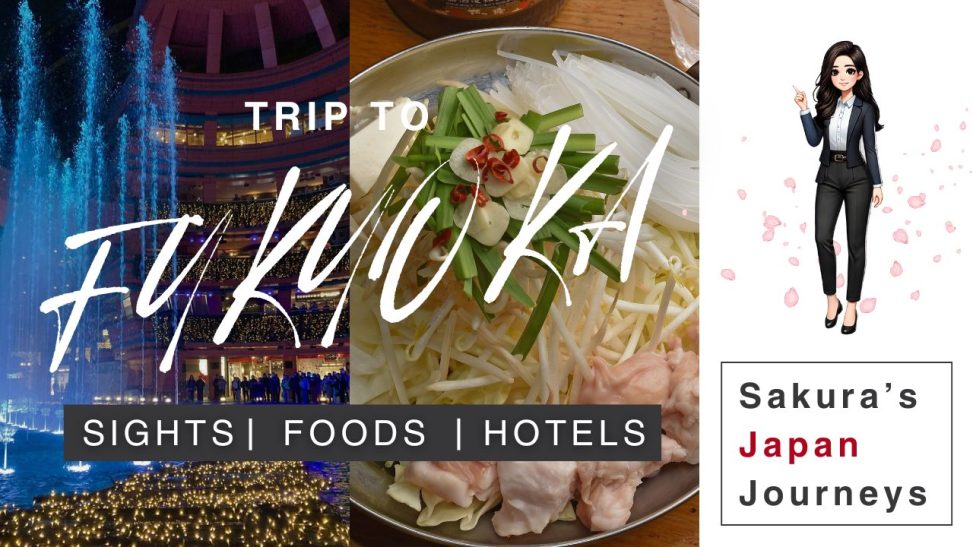
Leave a Reply